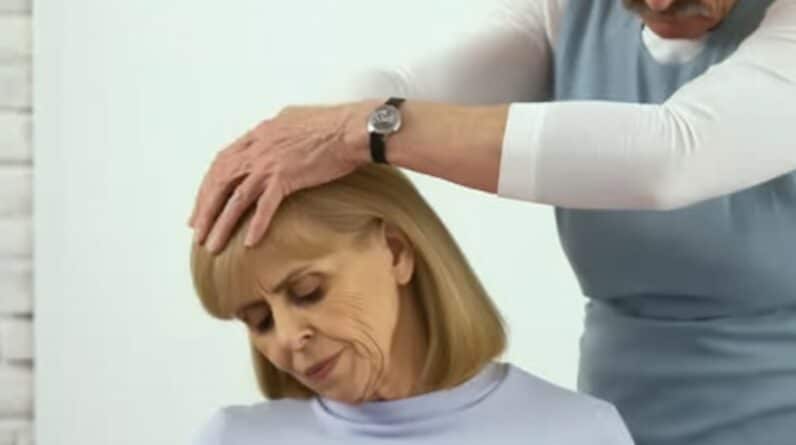
We may earn money or products from the companies mentioned in this post.
As an Amazon Associate I earn from qualifying purchases.
Table Of Contents
Introduction
Have you ever noticed an unpleasant ringing in your ears after your morning cup of joe? If you’ve asked yourself “Can caffeine cause tinnitus?”, you’re not alone. Let’s delve into the often confusing relationship between caffeine and tinnitus and untangle the truth.
Tinnitus – that annoying, persistent buzzing or ringing in the ears – affects millions worldwide. This condition, often linked to damage to the ear or hearing loss, is a symptom of an underlying problem rather than a disease on its own. The causal factors for tinnitus can be many – a noisy environment, a blow to the head, or due to certain medications, among many others.
Caffeine, a stimulant that’s a staple part of our modern diets, is often implicated in flare-ups of tinnitus. However, it’s not as straightforward as it seems. This article aims to comprehensively discuss these interconnected topics of caffeine and tinnitus. So, let’s dive right in!
Understanding Tinnitus: Causes and Symptoms
Understanding tinnitus begins with recognizing its symptoms. Imagine a consistent hissing, buzzing, or ringing sound in your ears that just doesn’t seem to fade away. Unfortunately, for millions of people across the world, this isn’t just an exercise in imagination – this is the daily reality they deal with. Tinnitus is a complex condition and can materialize in various forms. Some people experience it as an incessant whistling sound, while others may endure it as a pulsating rhythm that aligns with their heartbeat. If you’re wondering how to make tinnitus go away – it is key to understand the underlying causes.
Next, let’s move on to exploring what triggers this incessant ringing in your ears. One of the prevalent causes of tinnitus includes exposure to loud noise. So, working in high-noise environments- such as construction sites or airports- might put you at a higher risk. But did you know that even certain foods could potentially trigger tinnitus? Yes, that’s true! Some foods might trigger tinnitus, including foods high in sugar and salt, and even our beloved caffeine-rich drinks.
Despite the persistence of tinnitus, numerous treatment options can help manage the symptoms effectively. From Cognitive-Behavioral Therapy (CBT) to sound therapy, numerous methods provide relief and enhance the quality of life for tinnitus sufferers. Recently, Temporomandibular Joint Disorder (TMJ) treatments have also shown promising results in reducing the symptoms. If you’re interested in exploring this further, check out our detailed post about TMJ tinnitus treatment on our website. Remember, treating tinnitus starts with understanding it. So, armed with this newfound knowledge, let’s proceed in our exploration of the intriguing link between caffeine and tinnitus.
Caffeine and Ear Ringing: What Research Says
Caffeine, as most of us know, is a stimulant loved for its ability to kick-start our days and keep us alert during those long nights. While its benefits such as improved focus and reduced risk of certain diseases like Parkinson’s and Alzheimer’s are well-known, its negatives shouldn’t be ignored. Excessive caffeine can sometimes lead to indigestion, insomnia, rapid heart rate, and more importantly, as some studies suggest, tinnitus.
So, does caffeine cause ear ringing? Let’s head over to our blog post on caffeine and tinnitus to see what researchers say. A study published in the American Journal of Medicine found no significant association between caffeine intake and tinnitus. Conversely, other studies suggest that caffeine cessation may increase tinnitus symptoms, indicating a protective effect of caffeine. However, the correlation remains ill-defined, requiring more extensive studies and research.
It’s also important to understand the public’s perception of caffeine’s role in tinnitus. If you frequent various Tinnitus Support Forums, you’ll find a mixed bag of individual experiences – while some individuals believe caffeine aggravates their tinnitus, others report no noticeable changes.
Does Caffeine Cause or Worsen Tinnitus?
Now moving to the million-dollar question: Does caffeine cause or amplify tinnitus? While direct causality is not yet scientifically proven, it is believed that caffeine may indirectly contribute to tinnitus. For one, caffeine is a strong stimulant that raises blood pressure levels. Hypertension is known to worsen the symptoms of tinnitus in patients. Thus, while caffeine may not directly cause tinnitus, it can potentially exacerbate existing symptoms.
Some individuals even share anecdotal evidence suggesting that their tinnitus symptoms improved after they reduced their caffeine intake. More about such patient experiences can be found in our blog post Does caffeine worsen tinnitus.
Nevertheless, it’s crucial to keep in mind that research in this area is inconsistent, with studies swinging the pendulum both ways. For instance, a study by the University of Bristol contrasts the notion that caffeine worsens tinnitus, suggesting that caffeine has little to no effect on tinnitus.
Drawing conclusions from current studies is tricky due to contrasting findings. Therefore, until more conclusive evidence is available, the relationship between caffeine and tinnitus remains a personal one. It seems that the impact of caffeine on tinnitus varies from person to person and thus, it’s essential to listen to your body and observe how it reacts to caffeine.
Preventing and Treating Tinnitus – Lifestyle Changes and Medical Options
You’ve made it this far, great job! Now you’re probably wondering: How can I avoid a potential caffeine-induced ear-ringing fiasco or treat existing tinnitus? Fret not, we’ve got you covered. The first and foremost step to prevent tinnitus is adopting a healthier lifestyle.
Tinnitus may be a manifestation of an unhealthy lifestyle. Hence, changes such as moderating coffee intake and adhering to a balanced diet can yield significant benefits. Additionally, maintaining healthy blood pressure levels, avoiding exposure to loud noises, and managing stress effectively are all crucial in warding off tinnitus. Swing over to our blog post on how to prevent tinnitus for a detailed guide on these preventative measures.
But what if you’re already grappling with tinnitus? Well, there isn’t a one-size-fits-all solution, but a variety of treatments, remedies, and support strategies can alleviate the condition. The American Tinnitus Association’s detailed overview Tinnitus Treatment is a fantastic starting point. Treatments like Cognitive Behavioral Therapy (CBT) and acupuncture, coupled with noise-suppressing devices, are widely employed. Additionally, tinnitus retraining therapy can be beneficial; this approach combines behavioral therapy with sound therapy, effectively teaching the patient how to tune out the ringing or buzzing sound.
Moreover, joining tinnitus groups support can provide much-needed emotional comfort. Such communities validate your experiences, and knowing that others are sailing in the same boat can help alleviate the psychological burden induced by tinnitus.
Conclusion
Caffeine, an integral part of our modern lives, is often implicated with tinnitus, with patients frequently reporting exacerbations post-caffeine consumption. However, these anecdotal experiences contradict some scientific studies, making the definitive link elusive. Until more conclusive scientific evidence emerges, considering caffeine’s role in tinnitus remains a personal undertaking.
In a world running on caffeine, awareness about its potential impact on tinnitus is essential. Remember to listen to your body and observe how it reacts to caffeine. If you find yourself frequently tormented by ringing ears after that latte, it might be time to reconsider your daily caffeine ritual.
Remember, treatment for tinnitus varies from individual to individual and thus requires a personalized approach. So, don’t shy away from seeking professional help and experimenting with different lifestyle adjustments and treatments, provided the changes align with your overall well-being.
Lastly, don’t let the sound of tinnitus silence your craving for life. Constant ringing or not, remember to dance to the rhythm of your own life, however, you might perceive the beat!
Does Caffeine Worsen Tinnitus - Frequently Asked Questions (FAQ)
The connection between caffeine and tinnitus is complex and is still being researched. While some individuals find that caffeine exacerbates their tinnitus symptoms, others see no effect, and some studies even suggest that it could potentially have a protective effect. It’s essential to monitor personal experiences and seek medical advice when needed. For a more detailed discussion, you can visit our blog post on [caffeine and tinnitus](https://pulsatiletinnitustreatments.com/caffeine-and-tinnitus).
While not all cases of tinnitus can be prevented, adopting lifestyle changes such as managing stress, avoiding loud noise exposure, maintaining optimal blood pressure, and regulating consumption of trigger foods (including caffeine) can reduce the risk of tinnitus. More information is available at [how to prevent tinnitus](https://pulsatiletinnitustreatments.com/how-to-prevent-tinnitus).
Treatment for tinnitus varies on an individual basis, depending on the underlying cause and severity. Options can include medicinal treatments, sound therapy, cognitive behavioral therapy, tinnitus retraining therapy, and more. Support groups also play a critical role in managing the condition. Visit [tinnitus groups support](https://pulsatiletinnitustreatments.com/tinnitus-groups-support) for further exploration.
It’s a mix – while some individuals notice an alleviation in their tinnitus symptoms upon reducing caffeine intake, others don’t see a significant difference. Research remains inconclusive on this matter. The key is to observe your unique reaction to caffeine and make adjustments accordingly. Visit [does caffeine worsen tinnitus](https://pulsatiletinnitustreatments.com/does-caffeine-worsen-tinnitus) to read more about diverse individual experiences and findings.
The relationship between caffeine and tinnitus is complex and varies from person to person. Some individuals have reported an improvement in their tinnitus symptoms after reducing their caffeine intake. However, scientific studies on the topic have produced mixed results. Some research suggests that caffeine might have a protective effect against tinnitus, while others find no significant association between the two. If you suspect caffeine might be exacerbating your tinnitus, consider gradually reducing your intake and observing any changes. It’s essential to consult with a healthcare professional before making significant changes to your diet or lifestyle.
Amazon and the Amazon logo are trademarks of Amazon.com, Inc, or its affiliates.
Related posts:
- Understanding ADHD and Tinnitus: Is there a Connection?
- Unlocking the Secrets of Ear Pain and Ringing: Comprehensive Guide to Causes, Symptoms, and Breakthrough Relief Strategies
- Tinnitus Unmasked: Why Your Ear Has Been Ringing for Hours and How to Silence It
- Antibiotics and Tinnitus: The Hidden Link and How to Protect Your Hearing








3 Comments